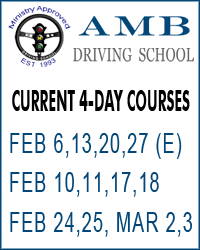IELTS marriages: Canada’s international student reforms may affect these kinds of marriages in India
At first glance, it looks just like any matrimonial profile, detailing the age, height and education background of the boy looking for a match. But then there’s a twist: Only an “IELTS clear girl” should bother responding.
In another ad, a young woman with a bachelor’s degree in science is looking for a groom interested in moving to Canada and willing to bear all expenses. And her biggest asset, as advertised: “IELTS 7 band.”
IELTS stands for the International English Language Testing System, one of the world’s most popular English proficiency tests for higher education and immigration — and an entry requirement to come to Canada. International students need a minimum overall score of 6 in writing, reading, listening and speaking English for admission to undergraduate and diploma programs in this country.
A perfect match would mean the bride could get the boy’s family to pay for her tuition and living costs of studying abroad. In exchange, the groom could come to Canada on an open work permit, accompanying the spouse. And they’d both hope to one day earn their permanent residence here.
“These are real marriages and there’s nothing illegal about it,” said Rajinder Taggar, an investigative reporter based in Chandigarh, India. “You can find these matrimonial ads very easily, in all the newspapers. People make no secret about it.”
But the practice of so-called “IELTS marriages” is coming to an end, quickly, after Canada’s announcement last week to tighten up the international student program. Among the many changes made by Ottawa is stop issuing work permits to the spouses of international students in undergraduate and diploma programs.
“The boy marries the girl and his family puts money in her studies, so the spouse can come,” Vinay Hari, a prominent education agent based in Jalandhar, told the Star. “Now that will stop. The girl will not get the money for the education in Canada.
“They will file divorces and their relationships will be terminated. It’s already happening.”
Almost 40 per cent of Canada’s international students these days come from India, where prospective students are being hardest hit by Canada’s recent changes to the international student program.
Last month, Immigration Minister Marc Miller announced a plan to slash the number of new study permits issued across Canada this year by 35 per cent from last year’s level, to 364,000, while leaving the number of applicants accepted in master’s and doctoral programs, as well as those admitted to primary and secondary schools, uncapped.
Other new or recent measures include:
• Effective on Jan. 1, doubling the cost-of-living financial requirement for study permit applicants from $10,000 to $20,635 in addition to their first year of tuition and travel costs;
• Starting Sept. 1, stopping to issue post-graduation work permits to international students who complete programs provided under so-called Public College-Private Partnerships;
• In the weeks ahead, the spouses of most international students will no longer be granted work permits, with the exception of those studying in graduate schools or in a professional program such as medicine or law.
These three measures are intended to raise the bar and plug the incentives for people to take advantage of the international student program in what Miller has described as a “backdoor entry” into Canada.
According to Taggar, the Indian journalist, IELTS marriages have been happening for some time, but they became more common with Canada’s open policy to welcome international students and the marketing by unscrupulous agents to promote international studies as an immigration scheme.
“Girls work harder and are smarter. And they pass the IELTS exam,” said Taggar, who has published in the Tribune, Indian Express, Hindustan Times, and Times of India. “Some of them come from poor families but they are good at studies. The boys’ families will pay for the education. They want to come to Canada and become permanent residents. That’s all.”
Removing the spousal work permit for students in undergraduate and college programs, which are normally cheaper and shorter than postgraduate studies, would deter that kind of exploitation of the international student program, he said.
Hari, the education agent, said he has received more than 100 inquiries in the past week from prospective students who asked to withdraw their applications for programs delivered under public-private college partnerships because they will no longer grant postgraduation work permits.
These partnerships are mostly between smaller public colleges in remote communities in the province and private colleges in Greater Toronto, where international students prefer to live — prompted by the public institutions’ need to stay afloat amid declining domestic enrolment and provincial funding cut.
The business model allows taxpayer-funded colleges to provide curriculum at a fee to private career college partners, who can hire their own non-unionized instructors to deliver the academic programs in the region.
Graduates from the private colleges then get a public college credential, which made them eligible for a postgraduate work permit as a pathway for permanent residence.
After the Jan. 22 changes, “they told us, ‘Sir, I don’t want to go to a (public-private partnership college). Transfer my application to the (public college) main campus,'” Hari said. “They don’t want to go to Hanson College in Toronto or Brampton. They want to go to Cambrian College in Sudbury.”
Over the last five years, said Hari, Canada has gained a bad reputation in India as a destination for immigration through education. As a result, many Indian students are enrolled in college diploma programs that give them quick access to work permits but won’t necessarily advance their employment and career prospects.
He said serious learners now tend to prefer the United States, the United Kingdom and Australia, while those who want to immigrate come to study in Canada.
“Thousands of these students are coming for these general business programs,” said Hari, who has helped more than 11,000 students come to study in Canada in the last 14 years. “Did Canada produce that many businessmen and entrepreneurs?
“This immigration scam has given students the opportunity to work full time. So students are not coming but labourers are coming.”
Hari said many prospective students and their families in India are panicking in the wake of Miller’s announcement because the price tag has now gone even higher, with education agents quickly shifting to promote and market the master’s programs in Canada.
“Canada has to support the quality education. They have to fund public colleges and universities,” he said. “The PPPs have created a mess and I think Canada is now on track again.”
Nitin Chawla, an education agent and immigration consultant based in Ludhiana in Punjab state, said he’s already seeing the impacts of Canada’s new rules as inquiries about Canada have slowed down and most people walking into his office are now exploring the opportunities to study in other countries, such as New Zealand.
While these changes might be good for Canada because they’ll raise the qualifying requirements and help weed out the “weaker” students, Chawla said they are going to have ripple effects on the consulting industry and employment in India, where tens of thousands of people make a living selling immigration to this country.
“Here in Punjab, the first word a baby learns is Canada,” he said. “People will not stop going to Canada, but the number will drop very badly. People have already started withdrawing (visa application) files.”
He predicted many people in India will lose their consulting and recruitment jobs, including some of his 40 staffers, and so will many employed in the postsecondary education sector in Canada.
In a recent entry on his blog, Alex Usher, an expert on higher education, said the federal crackdown on the public-private college partnerships — upwards of 125,000 international students in Greater Toronto — is going to take at least $1.5 billion in revenue out of the hands of Ontario colleges.
“Without the promise of a post-graduation work visa, it is hard to see how those spots are going to stay filled,” wrote Usher, president of Higher Education Strategy Associates. “I’d wager a couple of the northern colleges, who used PPPs as a way to escape the brutal economics of teaching in the more sparsely populated north, will be in need of a bailout soon.”
This article was reported by Star
















